Games Britannia, BBC Four
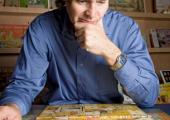

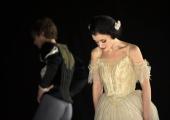
If Margot Fonteyn and Rudy Nureyev were the most massively important people who ever existed in ballet, then the most massively important question that ever existed in ballet was, did they sleep together? Last night Margot got this over pleasingly quickly. There was the quivery BBC anno at the start that there would be scenes “of a sexual nature”, and hop-skip-jump the couple were at it like rabbits straight after their first performance together.

Anne-Marie Duff doesn't really resemble Margot Fonteyn. Blonde, fresh-faced and blue-eyed, she has nothing of the exotic, olive, Latin complexion that Fonteyn inherited from her Brazilian grandfather. And she never learned ballet, even if, with her long, lean frame and elegant swan neck, she looks more like a dancer than the rather more compact Peggy Hookham of Reigate (as Fonteyn started out in life).

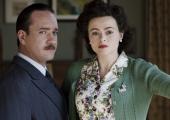
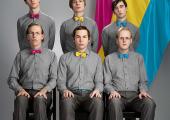
Would-be axe murderers of the BBC often propose to lop off (among other things) TV channels Three and Four, but Four’s music coverage is vastly better value for viewers’ money than the executive pension fund. Synth Britannia stuck firmly to Four’s “Britannia” formula, being a bunch of talking heads and clumps of archive footage interwoven with synth-pop classics from the late Seventies and early Eighties. But that’s OK as long as the raw material is strong, and this saga of post-punk, pre-New Romantic gadget-pop was often fascinating and sometimes even thought-provoking.
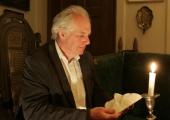
The Great Unknown, the Last Enemy, the Big Sleep… it’s death we’re talking about, and Dan Cruickshank’s affectingly personal film succeeded in reaching the conclusion that there is no conclusion he could comfort himself with. “What if after death there’s nothing?” pondered Dan.